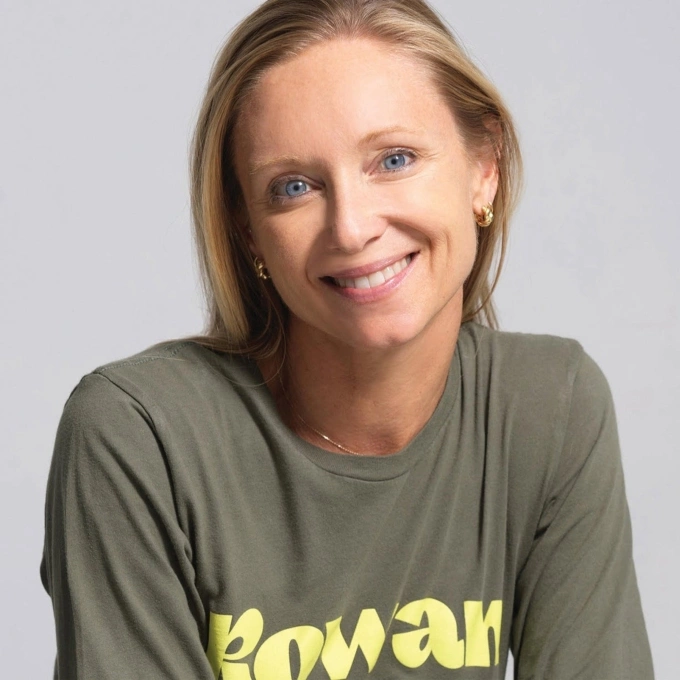The business, called Rowan, now employs about 800 people and operates 90 studios across the U.S. It aims to expand to 100 locations and reach $150 million in revenue by the end of this year.
Before Rowan came to be, Schneider was fairly successful in her finance career, having worked as a trader and analyst for Morgan Stanley and JPMorgan before landing a lucrative Wall Street job that paid a “competitive C-level salary,” as she described it to CNBC.
But she often found herself drawn to entrepreneurship. Over the years, she experimented with a yoga clothing brand and later a language tutoring venture, but neither took off.
Then a business idea came to her in 2017, when she realized how limited ear piercing options were for her daughter. Recalling her own unpleasant experiences getting her ears pierced, she spotted a gap in the market and decided to take the leap.
“I was working at a hedge fund, looking at retailers like piercing companies that were doing well in malls. Around that time my daughter was born and I thought, I’m not going to take her where I went as a 12-year-old,” she told Entrepreneur in an interview late last year.
 |
|
Louisa Schneider, founder of Rowan. Photo from the company’s website |
Ear piercing has, for years, typically been an add-on service at jewelry retailers or mall kiosks, with chains like Claire’s dominating the market and only a few specialist boutiques offering a higher-end alternative.
Schneider set out to change that by framing piercing as a medical procedure. Her company employs licensed nurses to perform piercings using hypoallergenic earrings made from premium materials.
“My parents were both doctors. My sister’s an ob-gyn. All my aunts are nurses. And they said, ‘Oh, we pierce patients’ ears all the time,’” she recounted. “That’s when a light bulb went off and I realized that this is a medical procedure – and no surprise that a woman’s health care issue hasn’t been properly addressed yet.”
The idea was unusual in 2017, but finding the right business model took time and several adjustments. Rowan quickly grew and partnered with major retailers like Target to set up pop-up stations before opening its own studios to offer a better experience for both customers and nurses. It has raised $25 million in funding since launch.
Rowan sells a broad selection of earrings, including a premium 14k gold earrings line that features some diamond-embedded pieces, but most of its revenue comes from its piercing services, priced at $35 for one ear or $50 for both, according to business magazine FastCompany.
“We’re not a fashion jewelry store. Our focus is entirely on protecting newly pierced ears,” Schneider says.
The company previously offered both monthly subscription boxes of hypoallergenic earrings for $20 a pair and an at-home piercing service during the Covid-19 pandemic, though both ended afterward.
The at-home option gained particular popularity at the time, as traditional studios like Claire’s were still offering only in-store piercings.
While Rowan gained traction early on, Schneider has shared that securing funding was difficult, even with her Wall Street background, as she often found herself pitching to mostly male investors.
“In the case of Rowan and ear piercing, very often I’d hear, ‘Let me ask my wife what she thinks,'” she told Business Insider in 2021.
“I understand that doing direct research is relevant, but I think generally men heard ear piercing and earrings, and they didn’t see what a potentially large opportunity there is.”
Still, Schneider remains confident that the consistent demand for first-time ear piercings will sustain her business in the long run.
“My experience was like so many other founders, where you just talk to a lot of people and you just have to continue to do your research — know the numbers, know the market size, know how you can make an impact, and really believe in what you’re doing.”





